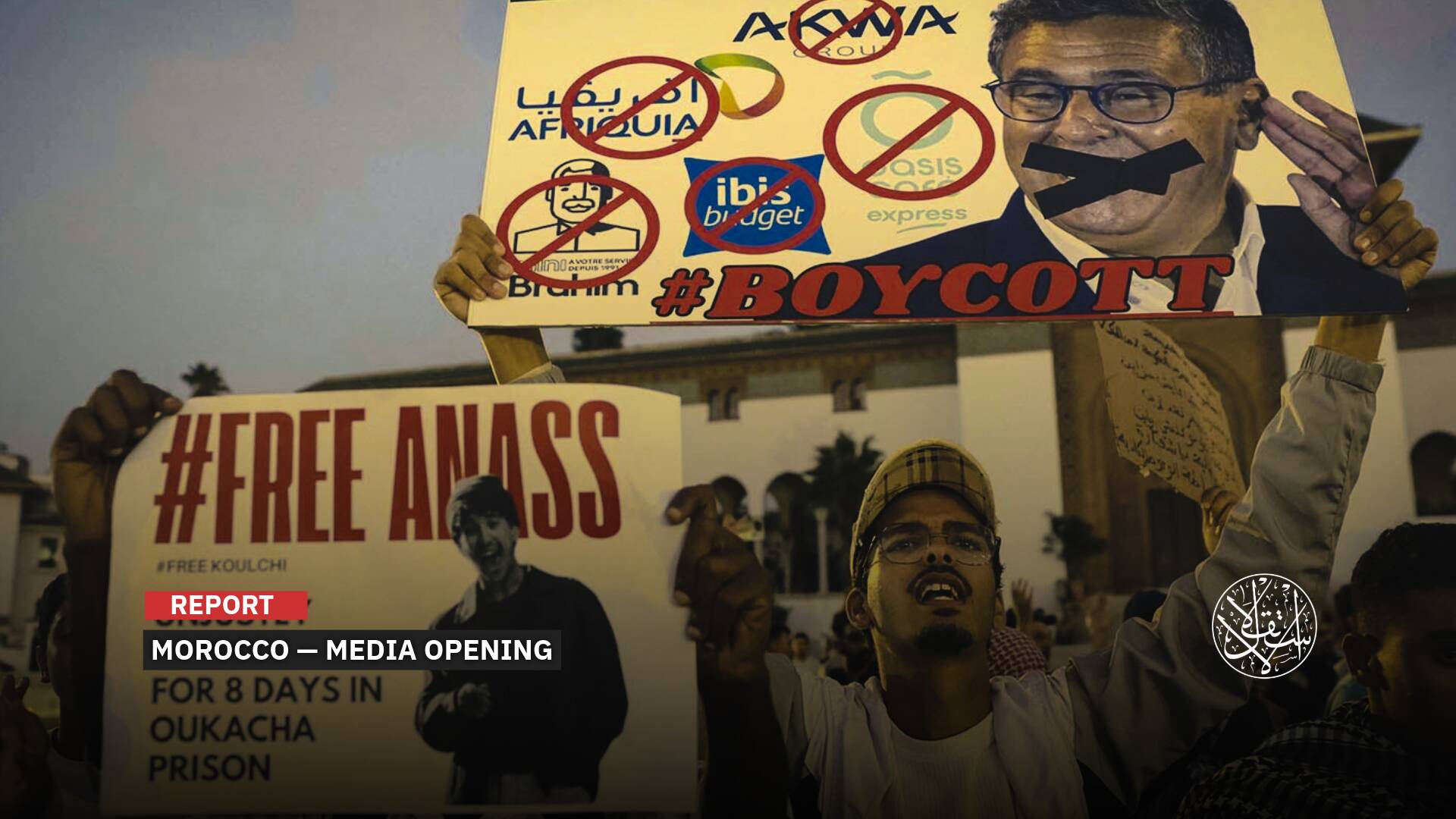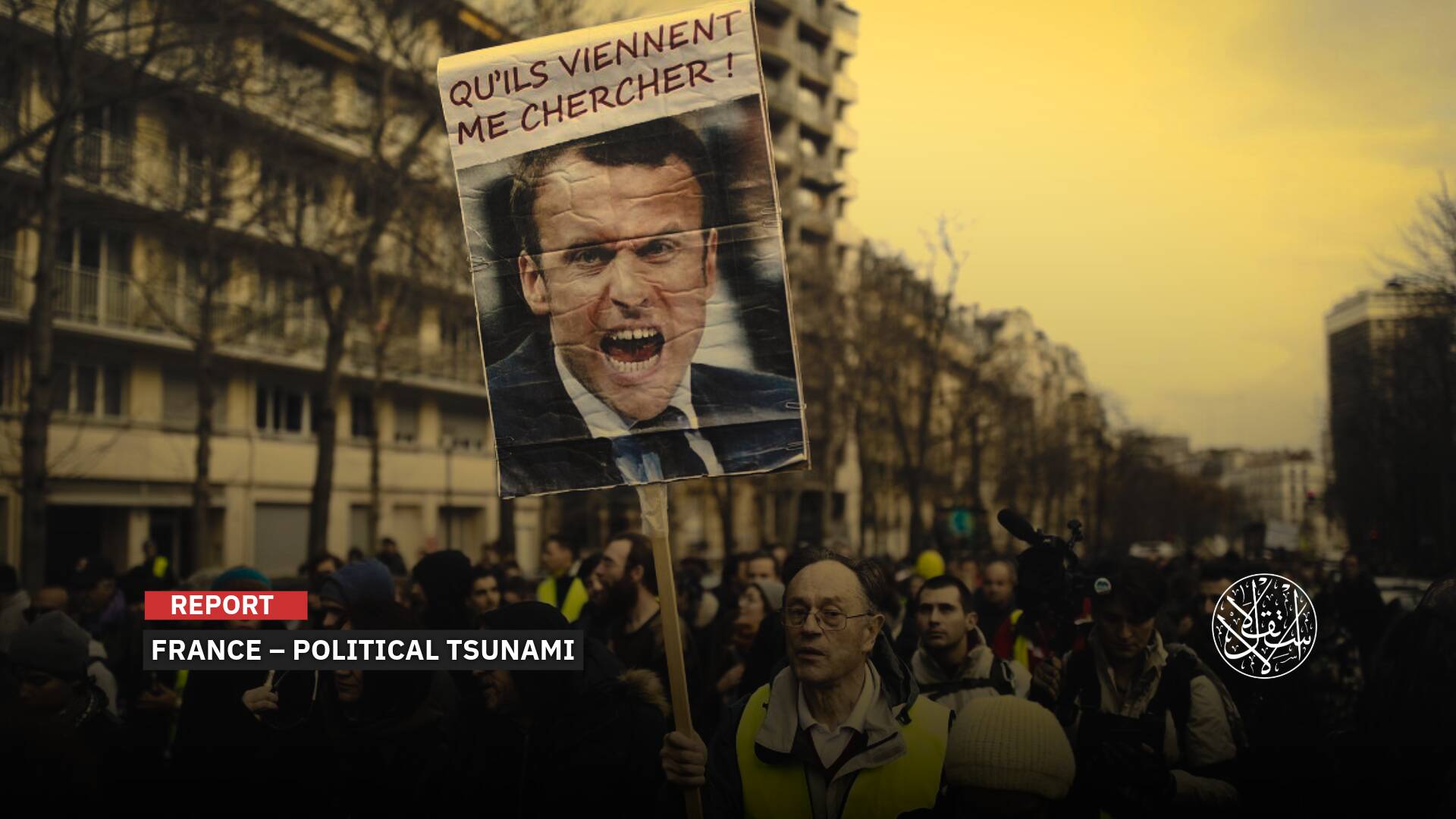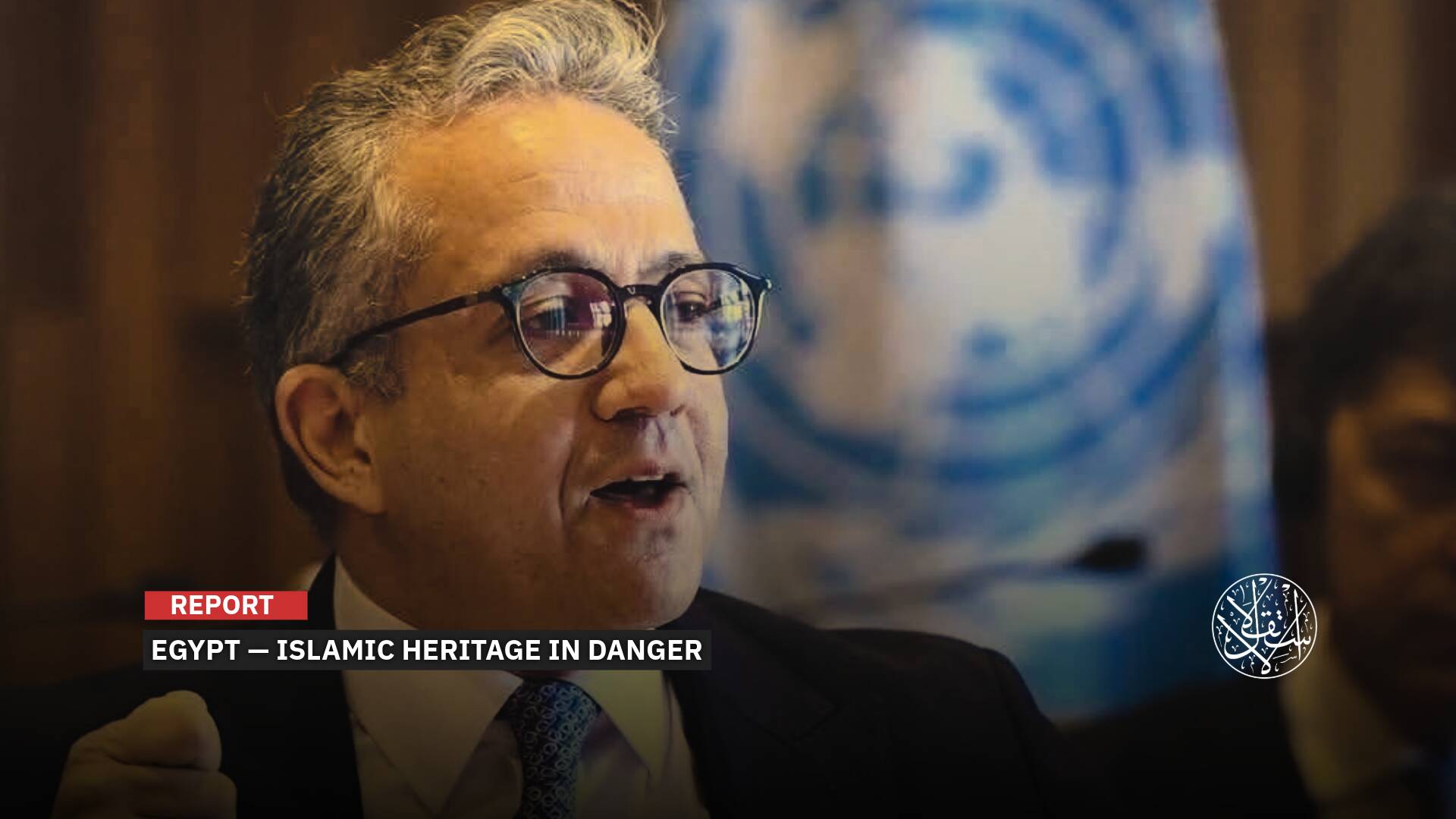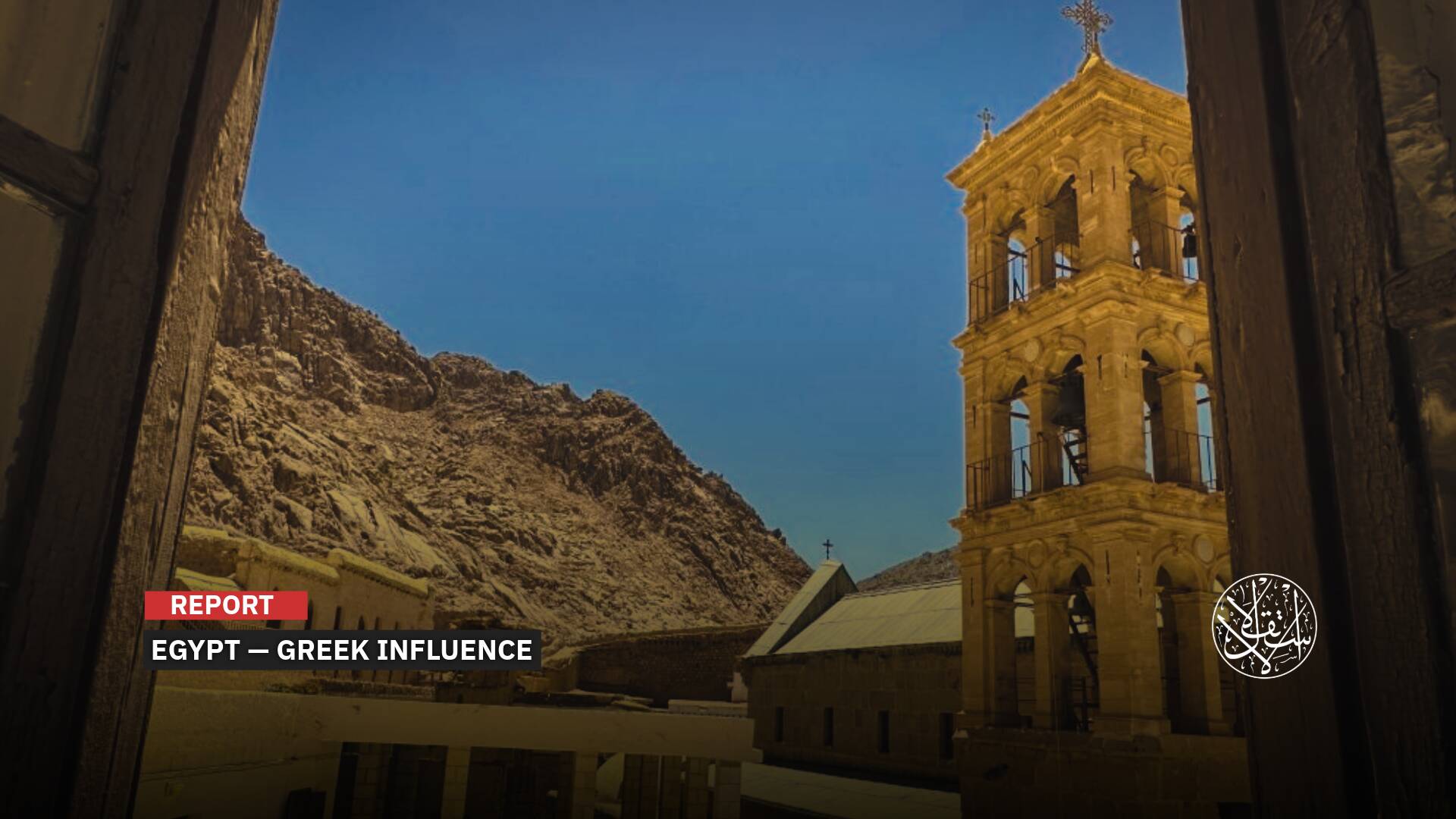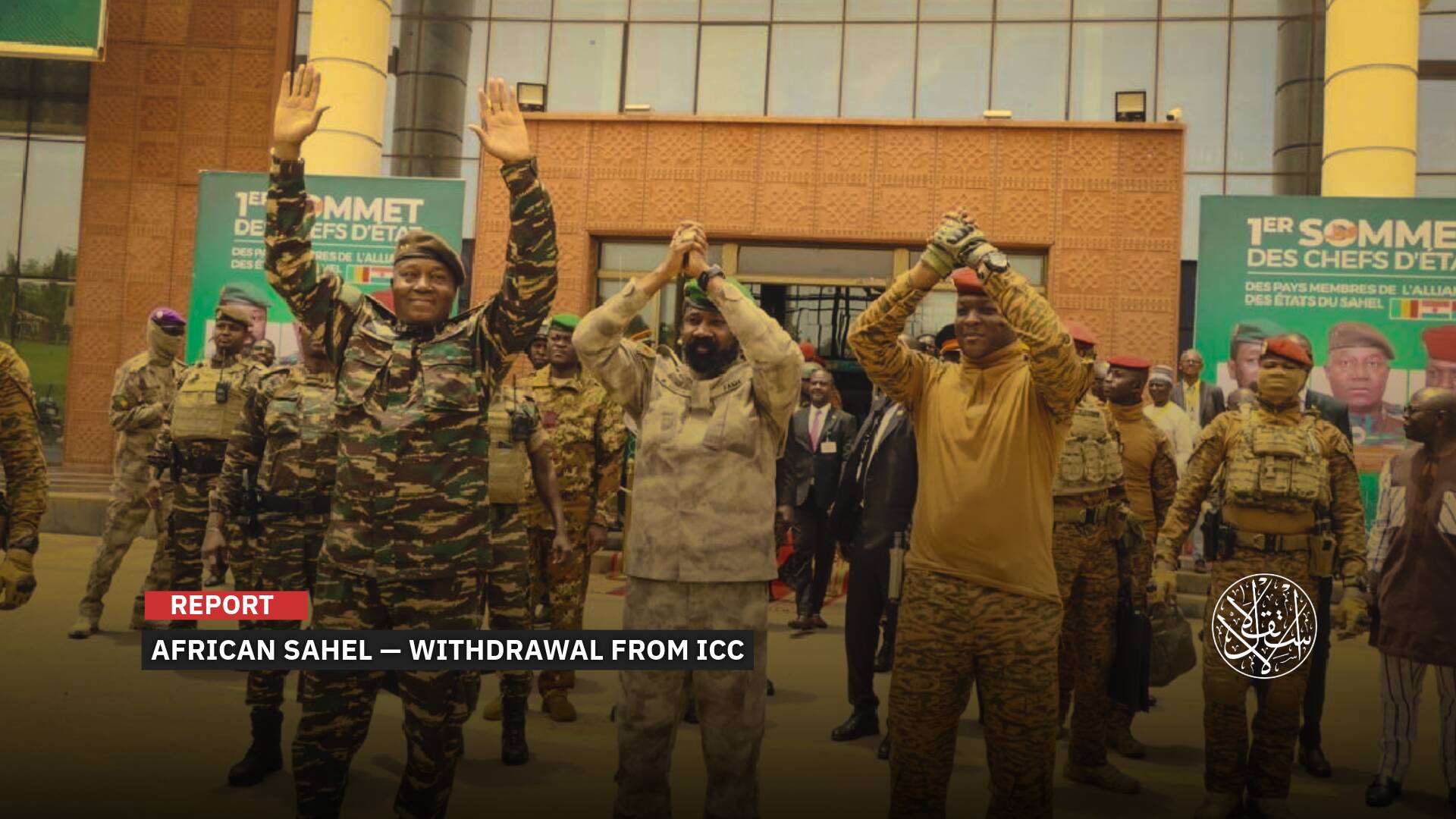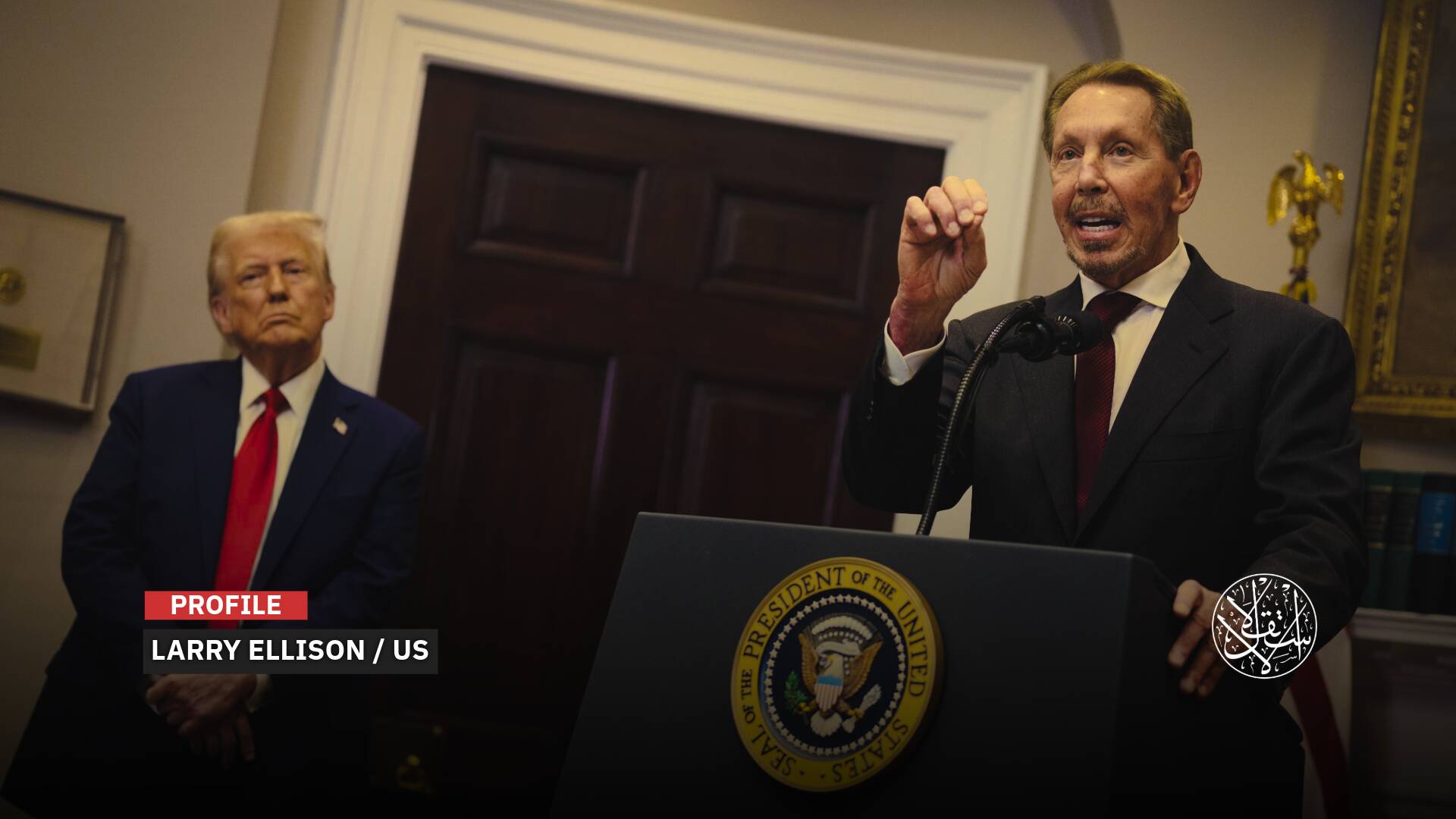Hardline Approach: How Far-Right Rhetoric Influences US Immigration Decisions
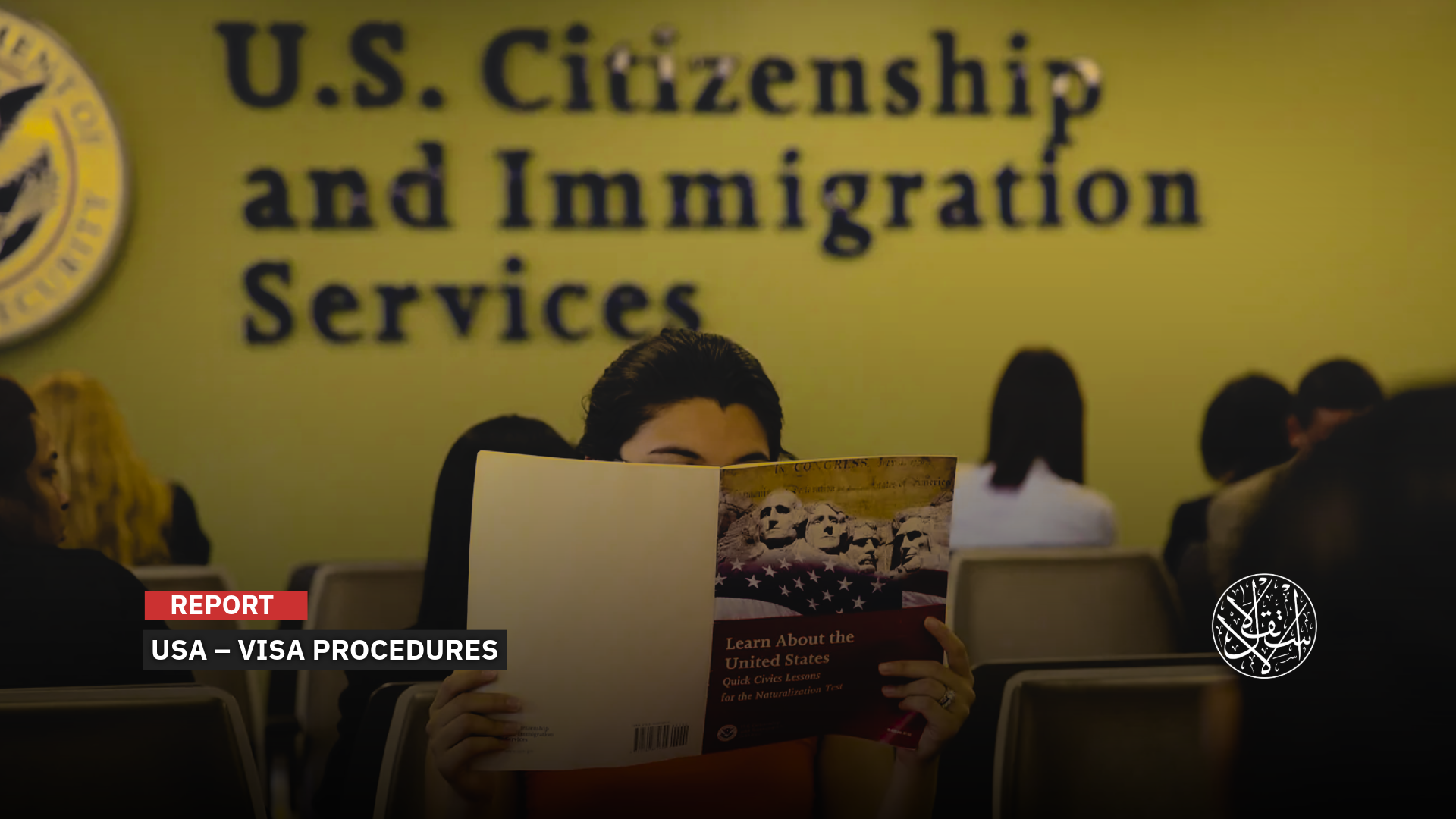
“The Trump administration continues its crackdown on immigration and international students.”
The US administration plans to review more than 55 million foreigners holding valid US visas, a significant expansion of ongoing efforts to curb what it describes as abuses of the legal immigration system.
The Washington Post reported that the Trump administration is waging a fierce battle against immigration, initially focusing on undocumented immigrants but later expanding to include reviews of legal immigrants, such as those arriving on tourist, work, or student visas.
With the recent resumption of visa issuance, the State Department has introduced new procedures, including vetting social media accounts for any anti-American or anti-Semitic content.
While most US states are witnessing protests against the Trump administration's immigration policies, the US president appears determined to control foreign presence in the country and combat immigration.
Trump has also banned foreign nationals from 12 countries from travelling to the U.S. and imposed partial restrictions on another seven.
In May, Trump's administration was allowed to temporarily revoke the legal status of over 500,000 immigrants living in the U.S. He has even vowed to end birthright citizenship.
Hardline Policies
As part of a tightened crackdown on foreigners allowed to enter the U.S., the Trump administration announced on August 21 that it is reviewing more than 55 million people holding valid US visas for violations that could result in visa revocation or deportation under immigration laws.
The State Department said all US visa holders are subject to ongoing, rigorous vetting, focusing on any indication of ineligibility for entry or residence in the United States.
It stated that indicators of ineligibility include overstaying, criminal activity, threats to public safety, engaging in any form of terrorist activity, or providing support to a terrorist organization.
The U.S. Citizenship and Immigration Services, part of the Department of Homeland Security, has implemented the largest and most comprehensive update to the way it processes applications for work, student, and immigrant visas.
These changes are effective immediately and will be applied to all pending and new applications.
The update builds on two executive orders issued by President Trump, one on counterterrorism that he issued in the first week after his inauguration, and the other on anti-Semitism.
These two executive orders are the foundation upon which the Trump administration has built its campaign of travel bans on citizens of Muslim-majority, African, and Asian countries, as well as its decisions to deny and revoke visas for international students based on their social media posts.
The new procedures require immigration officials to follow a policy manual that requires them to screen visa applications for any signs of hostility toward the American people, culture, or institutions, as well as any activity that suggests support for designated terrorist groups.
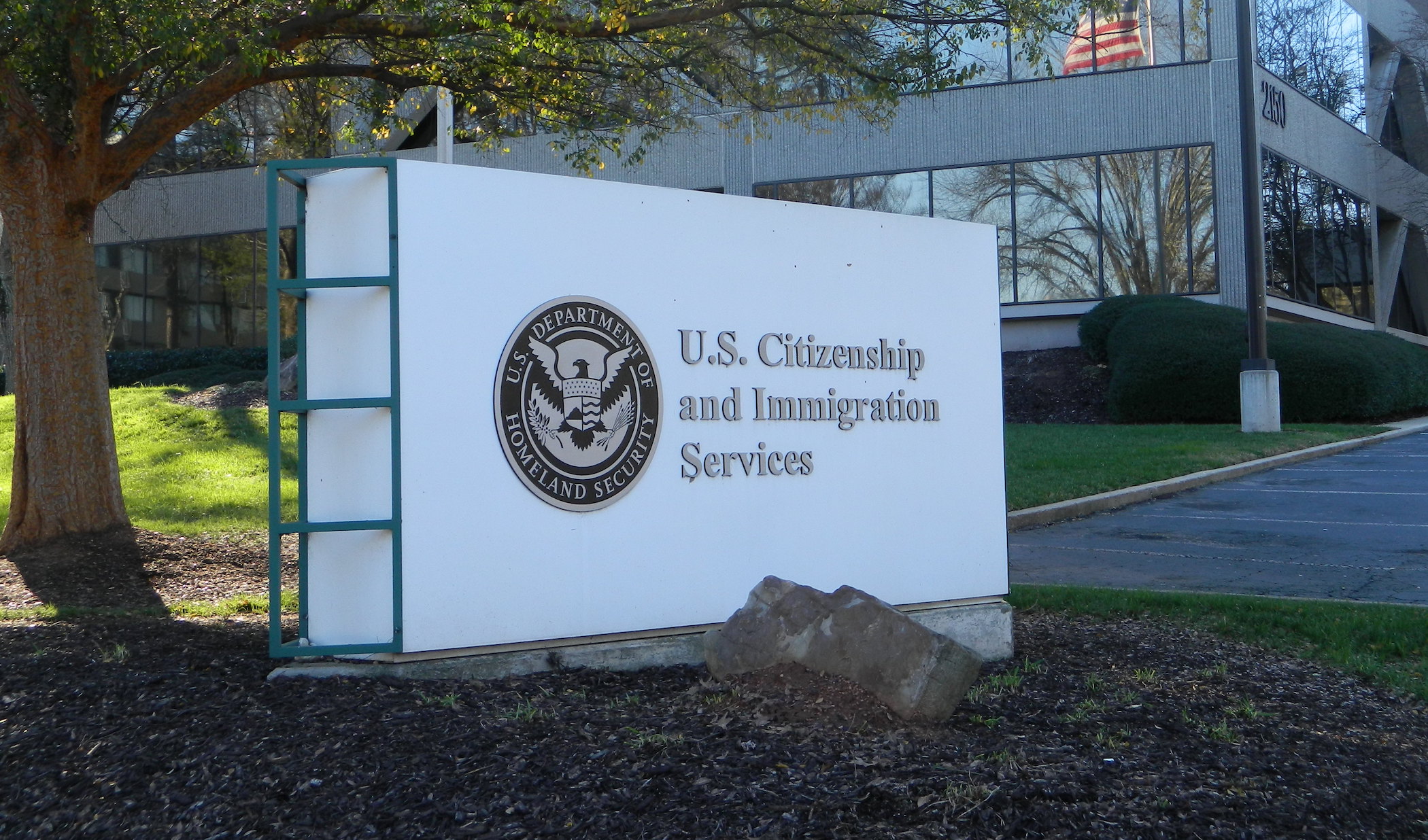
In April, the US government announced it would begin examining the social media accounts of immigrants and visa applicants for what it described as anti-Semitic activity.
Secretary of State Marco Rubio had targeted anti-Israel protesters, particularly students, citing a vague US law that allows visa revocations for people deemed to oppose US foreign policy interests.
He argued that his department had the right to issue and revoke visas without judicial review, and that non-US citizens did not enjoy the US constitutional right to free speech.
However, his decisions have been met with legal setbacks. Last June, a judge released Mahmoud Khalil, a Palestinian permanent resident of the U.S. who led anti-“Israel” protests at Columbia University.
Another judge last May released Turkish student Rumeysa Ozturk, a graduate student at Tufts University who wrote an article in a university newspaper critical of “Israel”.
These policies have drawn sharp criticism from Democrats and human rights organizations, who consider targeting students based on their political activism a violation of the freedom of expression guaranteed by the US Constitution.
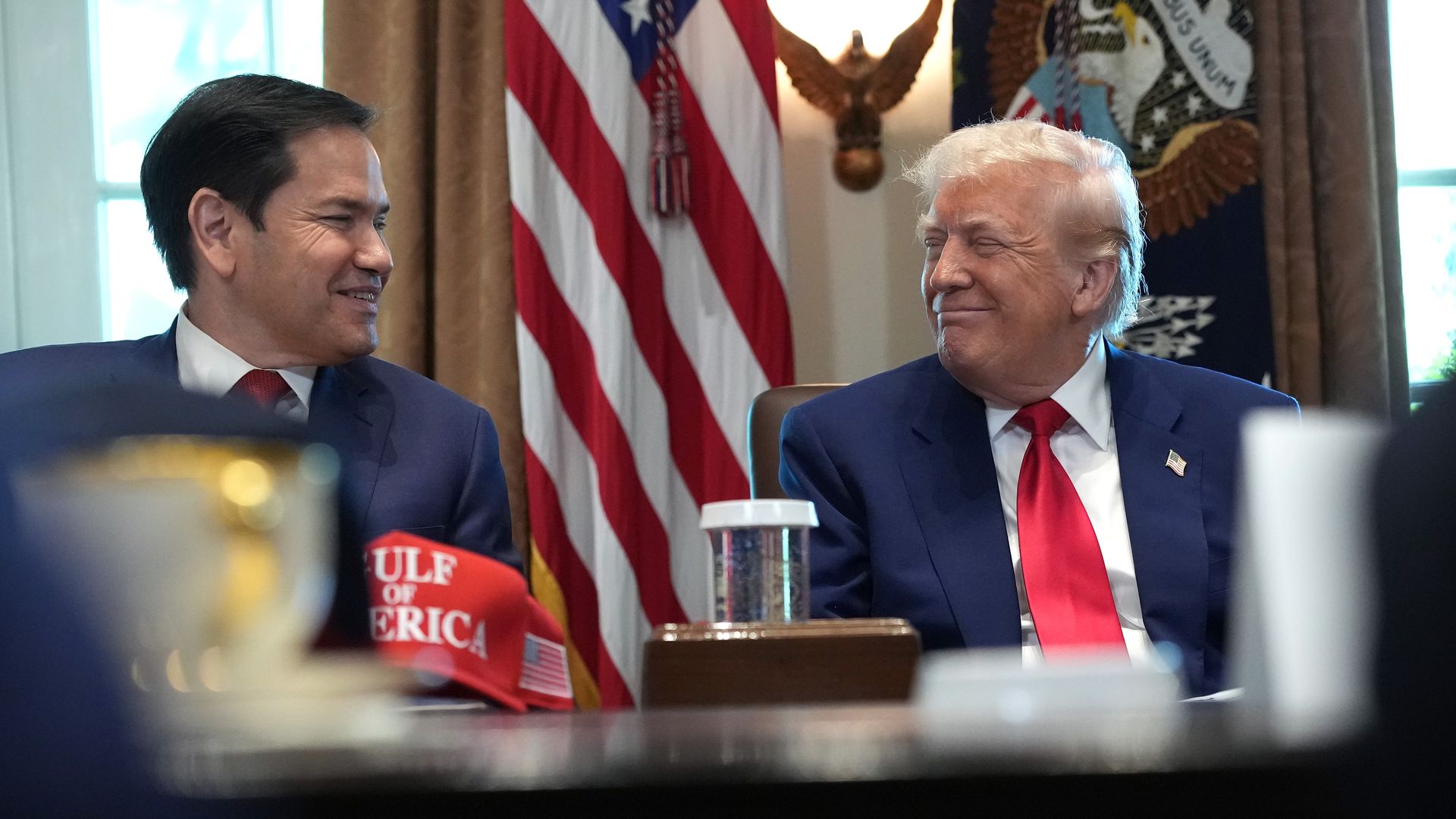
Visa Crisis
In a continuing escalation reflecting the Trump administration's hardline policies since the beginning of his second term, the State Department has revoked more than 6,000 student visas.
These figures represent nearly four times the number of student visas revoked by the Biden administration during the same period the previous year.
According to a State Department statement, nearly 4,000 visas were revoked due to student violations, including physical assault, driving under the influence of alcohol or drugs, and robbery.
Between 200 and 300 visas were revoked for supporting terrorism, based on provisions of the US Immigration and Nationality Act.
However, the Trump administration's definition of support remains unclear, as it has not provided precise details about the nature of the activities included in this classification.
The Trump administration has been accused of exploiting this provision to target students who participated in pro-Palestinian demonstrations or expressed criticism of Washington's policies regarding the war in Gaza.
The revocation of visas was not limited to the revocation of visas alone; it also included imposing new procedures on applicants to study in the U.S.
A State Department official said, “We review all student visas,” adding that the State Department constantly monitors social media posts, which visa applicants are now required to demonstrate.

Secretary of State Marco Rubio defended the policy, stressing that a student visa is a privilege, not a right, and can be revoked if authorities later uncover disqualifying information.
The U.S. is the world's leading educational destination, welcoming more than 1.1 million international students during the 2023-2024 academic year.
However, the Trump administration's decisions portend a serious decline in these numbers.
NAFSA, an international education organization, has predicted a 30% to 40% decline in the number of new international students enrolled in American universities, potentially representing a drop of 150,000 students.
It warned that this could result in losses of up to $7 billion annually, as well as the loss of more than 60,000 jobs directly linked to the presence of international students in the country.
Observers believe that the international student visa crisis has revealed a dark side of American policies regarding education and immigration.
They noted that it reflects a combination of security and politics at the expense of the values the U.S. has long prided itself on as a cradle of learning and freedom of expression.
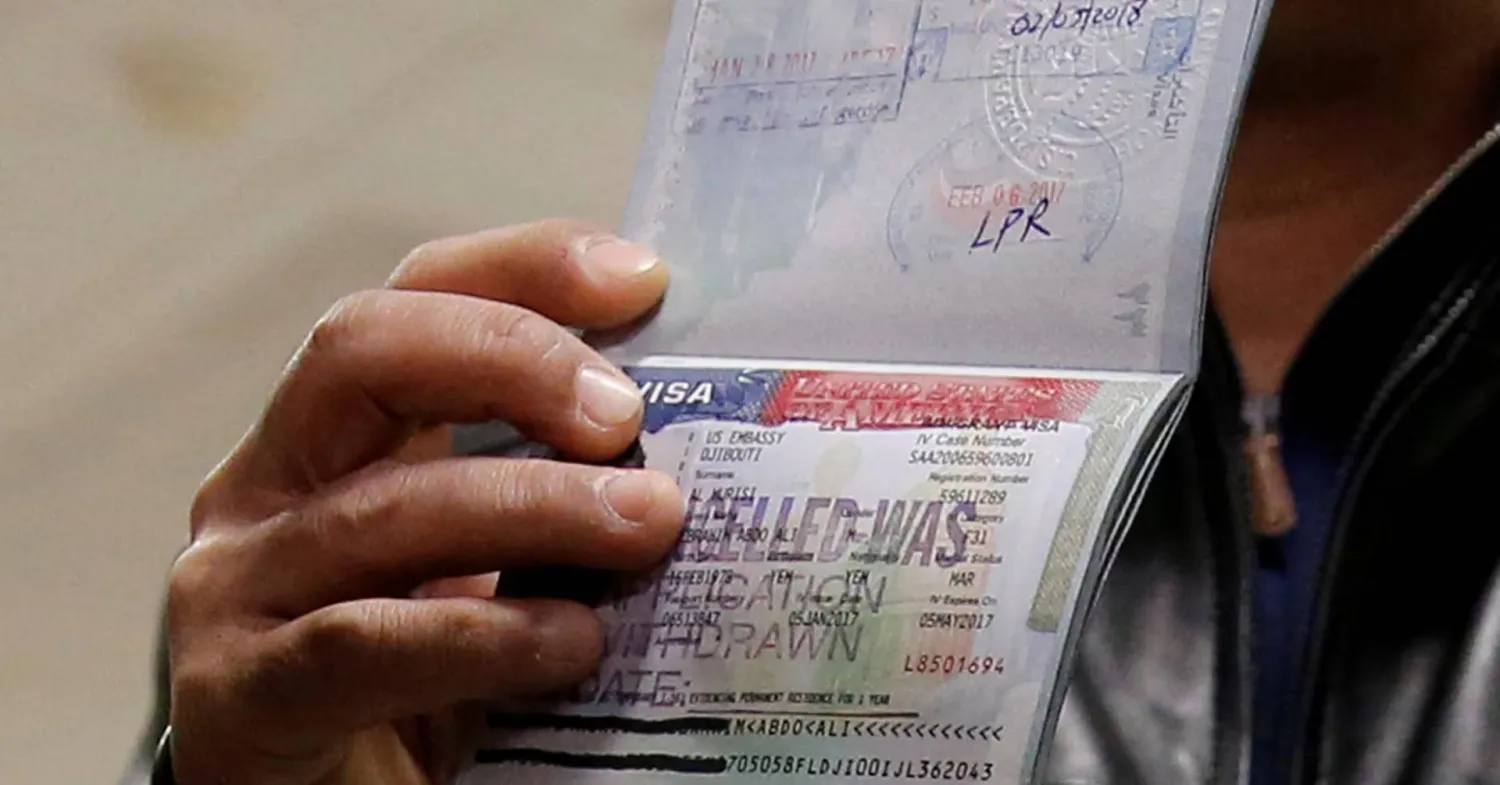
Far-Right Pressure
In another surprising move, the State Department announced on August 16 the suspension of B1 and B2 visas, which allow holders to enter the U.S. for visits or medical treatment.
It noted that a small number of humanitarian and medical cases had received exemptions in recent days.
Previously published Department statistics reveal that the U.S. has granted more than 3,800 visitor visas to holders of Palestinian documents in recent months, reflecting the expected impact of this decision on Palestinians waiting for treatment in US hospitals.
The decision did not come out of nowhere. Rather, it followed a political and media campaign led by far-right activist Laura Loomer, amid criticism and warnings regarding the repercussions of the decision on the lives of thousands of wounded children in the besieged Gaza Strip.
Loomer posted videos on her X account showing children from Gaza arriving in San Francisco and Houston earlier this month to receive medical treatment with the support of HEAL Palestine.
She claimed that the U.S. had begun accepting Palestinian refugees, sparking panic among Republicans.
“Why are any Islamic invaders coming into the U.S. under the Trump admin?” Loomer wrote alongside the video shared on X, while calling them a national security threat.
In her posts, she tagged President Donald Trump, Vice President J.D. Vance, Secretary of State Marco Rubio, Republican Texas Governor Greg Abbott, and Democratic California Governor Gavin Newsom.
Reactions were not long in coming. Republican Rep. Chip Roy of Texas described the entry of Palestinians as a national security issue and confirmed that he would formally inquire into the matter.
These statements increased pressure on the State Department, and the decision was quickly issued, echoing an atmosphere of fear and incitement.
In turn, Secretary Rubio justified the decision by stating that congressional offices had presented evidence indicating that some of the organizations involved in obtaining humanitarian visas have strong ties to terrorist groups such as Hamas, without providing evidence or naming these organizations.
HEAL Palestine, in a statement, confirmed that there is no refugee resettlement program, as Loomer claimed, and that the organization's efforts are part of a treatment program.
It noted that the program is funded by donations and has not used US government funds.
The US-based Palestine Children's Relief Fund (PCRF) called on the Trump administration to reverse this dangerous and inhumane decision.
A statement issued by the charity said that it has evacuated thousands of Palestinian children to the U.S. for medical care over the past 30 years.
The Council on American-Islamic Relations (CAIR) also condemned the move to suspend visas, calling it another sign of the intentional cruelty of the Trump administration.
After the State Department's announcement, Rep. Randy Fein of Florida attributed the decision to Loomer's pressure, praising her efforts.
The Associated Press noted Loomer's influence on the Trump administration, adding that several US officials left their positions or were immediately dismissed after the far-right activist publicly criticized them.
Observers believe that the State Department did not want to engage in a confrontation with this populist wave, choosing instead to identify with it through a decision that lacked political balance and humanitarian considerations.
This measure was also interpreted as an attempt by the Biden administration to counter Republican accusations that it is being lenient with the Palestinians.
Sources
- Trump administration to vet all 55 million foreigners with U.S. visas
- Trump administration expands ‘good moral character’ requirement to become naturalized citizen
- State Department revokes over 6,000 student visas, citing law breaking and overstays
- US suspends visas for Gazans after far-right influencer posts



